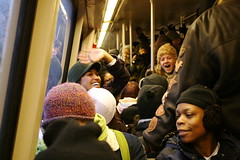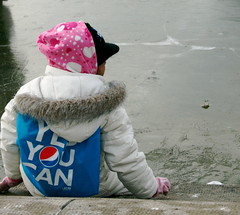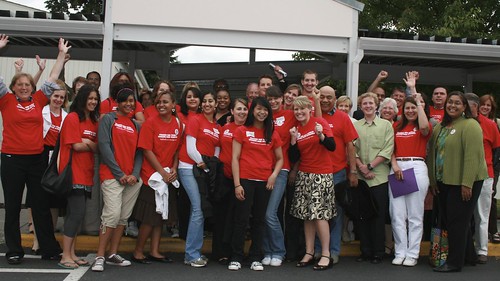Why go to the trouble of collecting endorsements?
Endorsements are one of the critical tools in the bag of tools that a grassroots organizer uses. The most important tool, the hammer, is your email list of contacts, but your screwdriver, your second most important tool is endorsements.
Endorsements make people “think”, and they make people “do”. The group has to listen, decide, and vote. This engages the group in a way a simple presentation never does.
All groups, including 501c3 nonprofit organizations can endorse a ballot measure, or bill going through the legislature. Yes ALL groups can endorse a bill. This includes Kiwanis, Rotary, PTA, Soccer teams, etc. Of course, culturally they may not want to endorse, they may feel uncomfortable. But endorsing is absolutely within the legal requirements of a nonprofit organization.
Endorsements really are like a screwdriver, they keep working and working and working. Simply engaging your organization by making them think about an issue and act on the issue is incredibly powerful. But there are two other things that happen when an organization endorses. The endorsement can be used as a public tool, and it creates a snowball effect with other organizations.
An endorsement means a group of people have all agreed that this bill or issue is a good idea. The endorsement carries more weight, is more effective because more than one person has agreed to the concept. Now you take this endorsement and you inform the public. You say, my group, X has endorsed this bill. You tell your legislators, you tell your community in your local newspaper, you tell your larger organizations. If your PTA endorses, you should tell other PTA’s in your area, you should tell the state PTA, tell your legislators, send a letter to the editor to tell your community, each of those “tells” influences people to think and maybe to act themselves.
The screwdriver keeps turning. When one group endorses, it makes it easier for other groups to endorse, they point at each other and think, they did it…why can’t we? If one city council endorses, it makes it easier for another, and another and another…the screwdriver keeps turning until we have bolted the idea in.
Endorsements are very, very effective tools in your grassroots toolbag. Let’s get to work.
Want to hear how a local School Board endorsement went – watch this short You Tube Video.
[youtube=http://www.youtube.com/watch?v=2RmXycxN_aE]
Kelly Munn, LEV’s State Field Director, describes testimony from teachers and parents on a resolution to support the Basic Education Task Force legislation (HB1410/SB5444) at the Issaquah School Board meeting on Thursday, February 5th. The resolution was adopted that night.
 I’ve never been part of history before. Don’t get me wrong, I’ve seen cool things and bad things, but saying I’ve witnessed History (capital H) would be a stretch. As I prepared for my trip I imagined what it would be like and, I have to say, I was wrong. My idea of History didn’t compare with what I experienced.
I’ve never been part of history before. Don’t get me wrong, I’ve seen cool things and bad things, but saying I’ve witnessed History (capital H) would be a stretch. As I prepared for my trip I imagined what it would be like and, I have to say, I was wrong. My idea of History didn’t compare with what I experienced. My trip built upon that moment. Every minute added another layer of power and depth. I spent the day walking the National Mall. Occasionally, I’d stop and talk to people, and they’d talk back. “Aren’t you excited?” “It’s really happening!” “This is my country.” Everyone was smiling. Everyone was helping one another whether by offering to snap a photo (I traveled alone), a piece of gum, a snack… anything. I slept only a few hours to board the metro just before 6 am and experience the start of a new day. The metro was PACKED, but no one pushed or argued or sniped. Instead people cheered, God Bless America broke out along with a short Happy Birthday to one girl who turned 21 (pictured at left).
My trip built upon that moment. Every minute added another layer of power and depth. I spent the day walking the National Mall. Occasionally, I’d stop and talk to people, and they’d talk back. “Aren’t you excited?” “It’s really happening!” “This is my country.” Everyone was smiling. Everyone was helping one another whether by offering to snap a photo (I traveled alone), a piece of gum, a snack… anything. I slept only a few hours to board the metro just before 6 am and experience the start of a new day. The metro was PACKED, but no one pushed or argued or sniped. Instead people cheered, God Bless America broke out along with a short Happy Birthday to one girl who turned 21 (pictured at left).
 I want all our children to go to schools worthy of their potential—schools that challenge them, inspire them, and instill in them a sense of wonder about the world around them. I want them to have the chance to go to college—even if their parents aren’t rich. And I want them to get good jobs: jobs that pay well and give them benefits like health care, jobs that let them spend time with their own kids and retire with dignity. – Barack Obama, ‘What I Want for You – and Every Child in America.’
I want all our children to go to schools worthy of their potential—schools that challenge them, inspire them, and instill in them a sense of wonder about the world around them. I want them to have the chance to go to college—even if their parents aren’t rich. And I want them to get good jobs: jobs that pay well and give them benefits like health care, jobs that let them spend time with their own kids and retire with dignity. – Barack Obama, ‘What I Want for You – and Every Child in America.’

